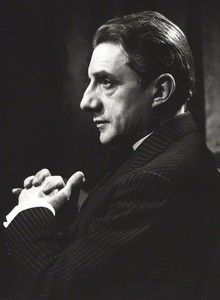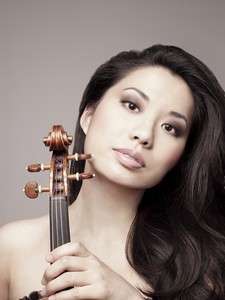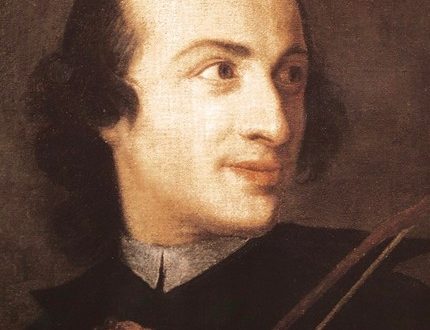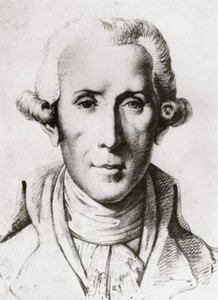
John Barbirolli (John Barbirolli) |
John Barbirolli

John Barbirolli likes to call himself a native Londoner. He really became related to the English capital: few people even in England remember that his last name sounds Italian for a reason, and the real name of the artist is not John at all, but Giovanni Battista. His mother is French, and on his paternal side he comes from a hereditary Italian musical family: the artist’s grandfather and father were violinists and played together in the La Scala orchestra on the memorable day of the premiere of Othello. Yes, and Barbirolli looks like an Italian: sharp features, dark hair, lively eyes. No wonder Toscanini, meeting him for the first time many years later, exclaimed: “Yes, you must be the son of Lorenzo, the violinist!”
And yet Barbirolli is an Englishman – by his upbringing, musical tastes, balanced temperament. The future maestro was brought up in an atmosphere rich in art. According to family tradition, they wanted to make a violinist out of him. But the boy could not sit still with the violin and, while studying, constantly wandered around the room. It was then that the grandfather came up with the idea – let the boy learn to play the cello: you can’t take a walk with her.
For the first time Barbirolli appeared before the public as a soloist in the Trinity College student orchestra, and at the age of thirteen – a year later – he entered the Royal Academy of Music, in the cello class, after graduating from which he worked in orchestras under the direction of G. Wood and T. Beecham – with the Russian Ballet and at the Covent Garden Theatre. As a member of the International String Quartet, he performed in France, the Netherlands, Spain and at home. Finally, in 1924, Barbirolli organized his own ensemble, the Barbirolli String Orchestra.
From that moment begins the career of Barbirolli conductor. Soon his conducting skills attracted the attention of the impresario, and in 1926 he was invited to conduct a series of performances of the British National Opera Company – “Aida”, “Romeo and Juliet”, “Cio-Cio-San”, “Falstaff”. In those years, Giovanni Battista, and began to be called by the English name John.
At the same time, despite a successful operatic debut, Barbirolli devoted himself more and more to concert conducting. In 1933, he first led a large ensemble – the Scottish Orchestra in Glasgow – and in three years of work he managed to turn it into one of the best orchestras in the country.
A few years later, Barbirolli’s reputation grew so much that he was invited to the New York Philharmonic Orchestra to replace Arturo Toscanini as its leader. He withstood a difficult ordeal with honor – a doubly difficult one, because in New York at that time the names of almost all the world’s largest conductors who emigrated to the United States during fascism appeared on the posters. But when the war broke out, the conductor decided to return to his homeland. He succeeded only in 1942, after a difficult and many days journey in a submarine. The enthusiastic reception given to him by his compatriots decided the matter, the next year the artist finally moved and headed one of the oldest collectives, the Halle Orchestra.
With this team, Barbirolli worked for many years, returning to him the glory that he enjoyed in the last century; moreover, for the first time the orchestra from the provincial has become a truly international group. The world’s best conductors and soloists began to perform with him. Barbirolli himself traveled in the post-war years – both on his own, and with his orchestra, and with other English groups literally the whole world. In the 60s he also led an orchestra in Houston (USA). In 1967, he, led by the BBC Orchestra, visited the USSR. To this day, he enjoys well-deserved popularity both at home and abroad.
The merits of Barbirolli to English art are not limited to the organization and strengthening of orchestral groups. He is known as a passionate promoter of the work of English composers, and primarily Elgar and Vaughan Williams, the first performer of many of whose works he was. The calm, clear, majestic manner of the conductor of the artist perfectly matched the nature of the music of the English symphonic composers. Barbirolli’s favorite composers also include composers of the end of the last century, masters of the grand symphonic form; with great originality and persuasiveness he conveys the monumental concepts of Brahms, Sibelius, Mahler.
L. Grigoriev, J. Platek, 1969





